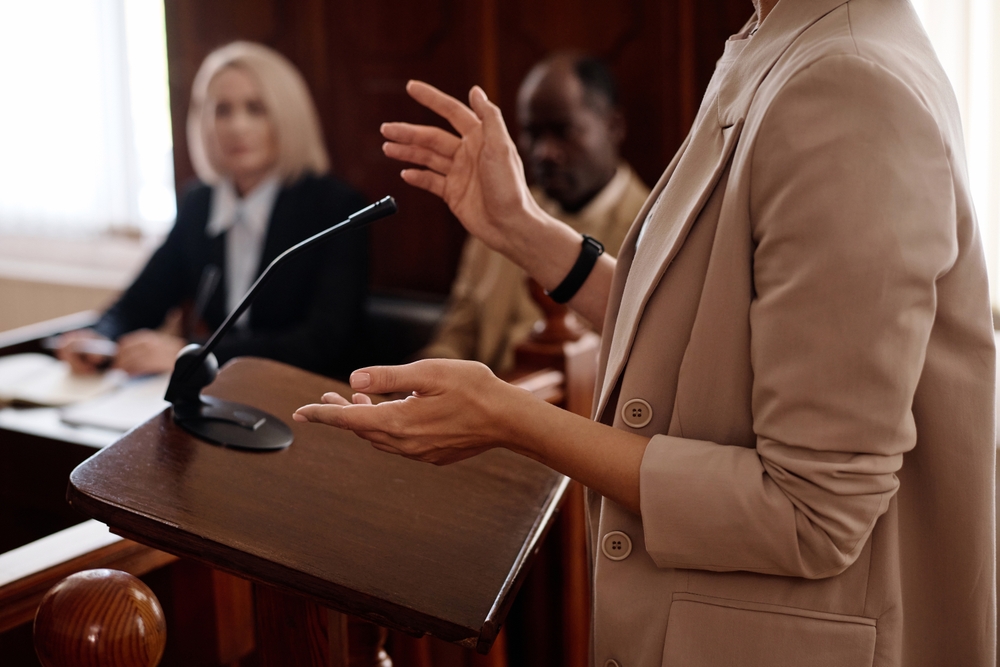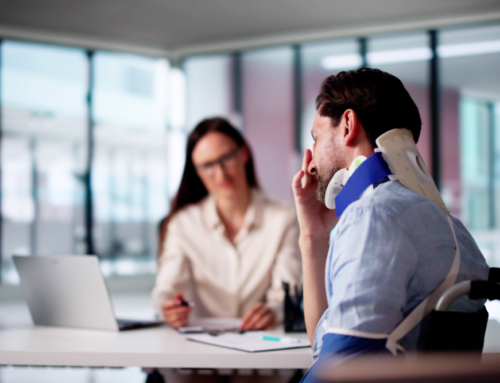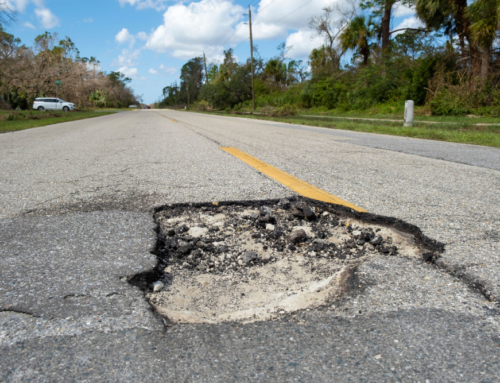When it comes to personal injury claims, the facts surrounding the incident can sometimes become blurred by differing accounts, legal arguments, and a lack of clear documentation. In these cases, witness testimony can be pivotal. At Payas, Payas, and Payas, we understand the significance of eyewitnesses in personal injury claims, and how their statements can make or break a case. This article will explore the role witnesses play in personal injury claims, why their testimony matters, and how they can influence the outcome of your case.
The Importance of Witnesses in Personal Injury Cases
Why Witness Testimony Matters
Witness testimony is one of the most powerful tools in a personal injury claim. Eyewitnesses can provide an objective account of what happened, often helping to clarify key details that may otherwise be disputed between the involved parties. Unlike the individuals directly involved in the accident, witnesses have no vested interest in the outcome, which lends credibility to their account. This neutrality can be crucial in proving liability, especially in cases where both parties offer conflicting accounts of the incident.
For example, in a car accident case, a witness who saw one driver run a red light before the collision can provide critical evidence to establish fault. In cases where the facts are disputed, such testimony can be the deciding factor in determining who is liable for damages.
How Witness Testimony Strengthens a Case
Witnesses often provide a fresh, impartial perspective that can significantly strengthen your personal injury claim. Their observations can help fill in gaps where there is a lack of physical evidence or where the parties involved have conflicting stories. Additionally, witness statements can help corroborate the details of your own account, reinforcing the credibility of your version of events. This can be particularly important when dealing with insurance companies, who may question the validity of your claim in an attempt to minimize payouts.
The strength of witness testimony can also be enhanced by the proximity of the witness to the event, their ability to recall details accurately, and whether their account aligns with physical evidence from the scene. A skilled personal injury attorney will know how to present witness testimony in the most compelling way possible to support your case.
Types of Witnesses in Personal Injury Claims
Eyewitnesses
Eyewitnesses are individuals who were present at the scene of the accident or incident and directly observed what took place. They can provide firsthand accounts of how the accident occurred, what actions were taken by the parties involved, and the conditions that may have contributed to the accident (such as road conditions or weather). Eyewitnesses are often the most valuable type of witness in personal injury claims because their testimony is based on real-time observations.
In a slip-and-fall case, for instance, an eyewitness who saw a spill in a grocery store before the fall can confirm whether the store had enough time to address the hazard. In this way, eyewitness testimony can be instrumental in proving that the defendant was negligent in maintaining safe conditions.
Expert Witnesses
While eyewitnesses provide an account of what they saw, expert witnesses bring specialized knowledge and expertise to explain technical aspects of the case. These experts are often called upon to provide testimony on matters that require professional insight, such as medical diagnoses, accident reconstruction, or financial analysis. In personal injury claims, expert witnesses are often used to clarify the extent of the injuries, explain the long-term impact of those injuries, and quantify the financial damages resulting from the injury.
For example, in a medical malpractice case, a medical expert can testify about whether the standard of care was breached by the healthcare provider. In a car accident case, an accident reconstruction expert might analyze the scene, vehicle damage, and other evidence to determine how the accident occurred. While these witnesses may not have seen the event firsthand, their expert analysis can be critical in proving negligence and calculating damages.
Character Witnesses
Character witnesses provide testimony about the injured party’s life before and after the incident. This type of testimony is particularly important in cases where emotional distress or long-term impacts of the injury are being considered. Character witnesses can describe changes in the victim’s personality, quality of life, or ability to perform daily tasks since the injury occurred. While their testimony may not directly establish liability, it can play a significant role in determining the amount of compensation for pain and suffering.
In a case involving a traumatic brain injury, for instance, a close friend or family member may testify about how the victim’s behavior and cognitive abilities have changed since the accident. This type of testimony can help the court understand the full extent of the non-economic damages the victim has suffered.
The Process of Gathering and Presenting Witness Testimony
Locating and Interviewing Witnesses
After an accident, it’s important to identify any potential witnesses as soon as possible. Witnesses may be bystanders, other drivers, store employees, or anyone who was in the vicinity of the incident. In many cases, witnesses are willing to provide their contact information and a brief statement at the scene. However, if you were too injured or shaken to collect this information, your attorney can work with investigators to locate witnesses and obtain their accounts.
Interviewing witnesses is a crucial part of building a personal injury claim. During these interviews, your attorney will ask witnesses to recount what they saw, ensuring that their testimony is accurate and aligns with the facts of the case. The goal is to create a clear and consistent narrative that supports your version of events and demonstrates the other party’s negligence.
Preserving Witness Testimony
Witness testimony is most reliable when it is given soon after the accident, while the details are still fresh in the witness’s mind. As time passes, memories can fade, and witnesses may become less certain about what they saw. For this reason, it’s essential to gather witness statements promptly. In some cases, witnesses may be asked to provide written statements or participate in depositions where their testimony is recorded under oath.
Your attorney will ensure that all witness testimony is preserved and can be used effectively during settlement negotiations or in court. This may include preparing witnesses to testify during depositions or trials, where the opposing party’s attorney may cross-examine them.
Presenting Witness Testimony in Court
If your personal injury claim goes to trial, witness testimony will play a key role in establishing the facts of the case. Eyewitnesses, expert witnesses, and character witnesses may all be called to testify before a judge or jury. Your attorney will carefully select and prepare witnesses to ensure that their testimony is clear, credible, and persuasive.
During the trial, witnesses will be questioned by both your attorney and the opposing party’s attorney. Cross-examination is often used to challenge a witness’s credibility or memory. An experienced attorney will know how to protect their witnesses from aggressive questioning and will emphasize the key points of their testimony to support your case.
The Impact of Witness Testimony on Settlement Negotiations
Strengthening Your Position in Negotiations
Most personal injury claims are settled out of court through negotiations between the parties and their respective insurance companies. The strength of your case, including the quality of your witness testimony, plays a significant role in these negotiations. When you have credible eyewitnesses or compelling expert testimony, it signals to the opposing party that you have a strong case that could hold up in court.
As a result, the opposing party may be more inclined to offer a fair settlement to avoid the risk of going to trial. Witness testimony can provide leverage during negotiations, helping your attorney secure a settlement that fully compensates you for your injuries, lost wages, and other damages.
Avoiding Lowball Offers
Insurance companies often try to minimize their payouts by offering quick, lowball settlements that don’t reflect the full extent of your damages. When you have solid witness testimony to back up your claim, you can avoid these lowball offers and negotiate for a fairer settlement. Your attorney will use witness statements to demonstrate the strength of your case and push for a settlement that adequately addresses both your economic and non-economic losses.
Without strong witness testimony, you may find it difficult to prove the full extent of your damages, leaving you vulnerable to accepting a settlement that doesn’t cover all of your medical bills, lost wages, and future expenses.
Conclusion: Why Witnesses Are Crucial to Your Personal Injury Claim
Witnesses are often the key to building a strong personal injury case. Whether they provide firsthand accounts of the accident, expert analysis, or insights into your personal life after the injury, their testimony can make the difference between a successful claim and a denied or undervalued one. At Payas, Payas, and Payas, we understand the importance of gathering and presenting credible witness testimony to support your personal injury claim.
If you’ve been injured in an accident, don’t wait to seek legal representation. Contact Payas, Payas, and Payas today for a free consultation with our experienced personal injury attorneys. We will help you locate and secure valuable witness testimony, build a strong case, and fight for the compensation you deserve. Let us be your advocate as you navigate the complexities of your personal injury claim. Call us now to protect your rights and secure the justice you need to move forward with confidence.








